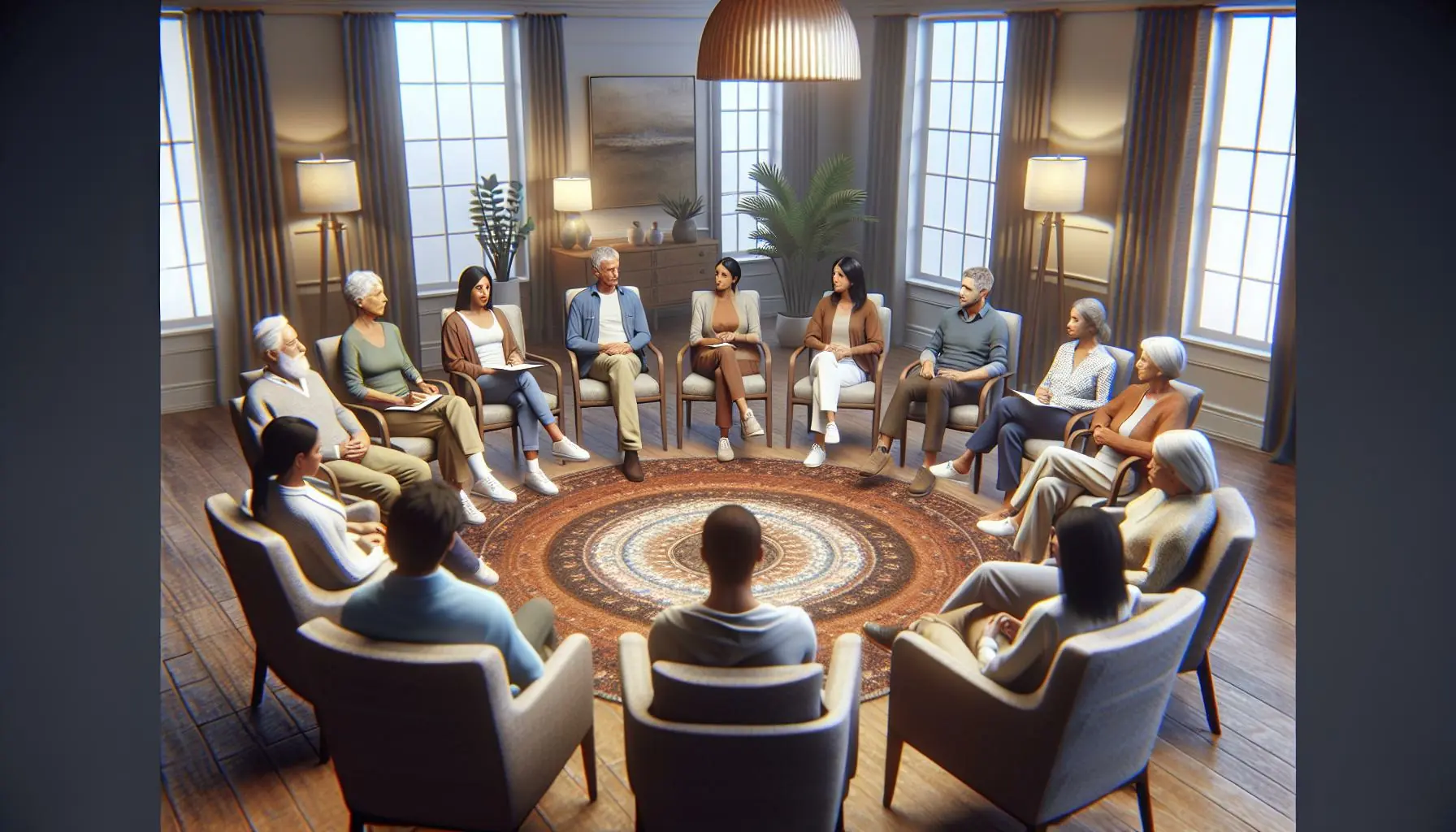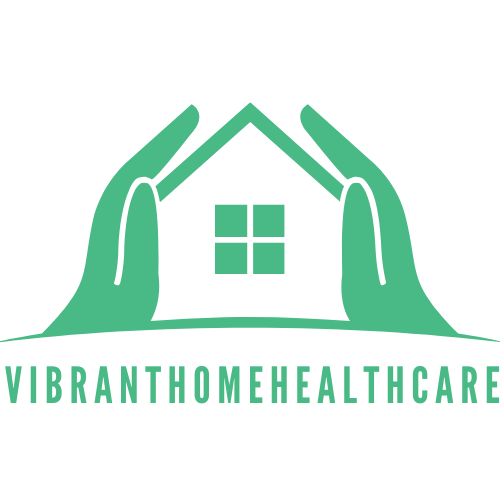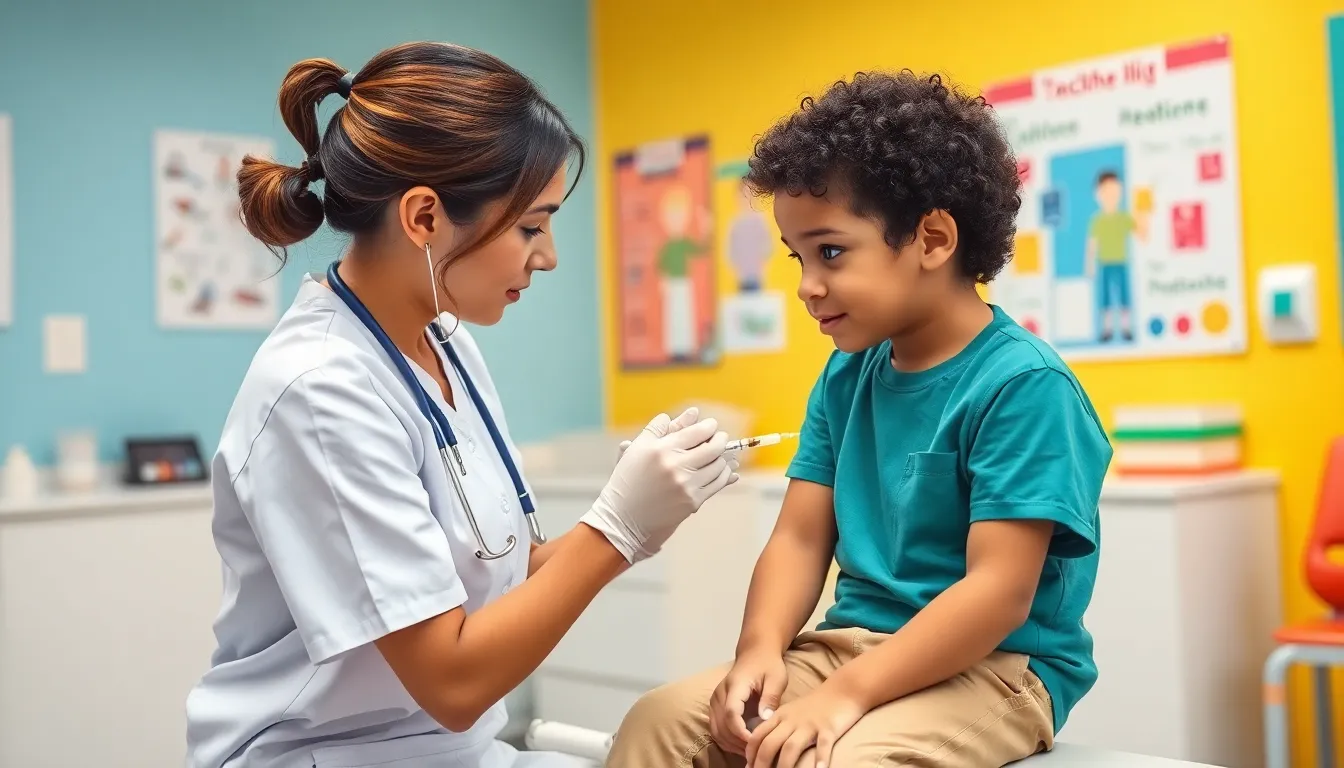Breaking free from gambling addiction isn’t just about putting down the cards or stepping away from the slots – it’s about reclaiming control of one’s life. For thousands of Americans struggling with compulsive gambling, specialized treatment centers offer a beacon of hope and a proven path to recovery.
Professional gambling addiction treatment centers combine evidence-based therapies, expert counseling and comprehensive support systems to help individuals overcome their dependency. These facilities understand that gambling addiction affects not just the gambler but their entire family dynamic relationships and financial stability. With success rates significantly higher than trying to quit alone treatment centers provide the structured environment and tools necessary for lasting recovery.
Table of Contents
ToggleUnderstanding Gambling Addiction and Its Impact
Gambling addiction manifests as a progressive behavioral disorder characterized by an uncontrollable urge to gamble despite negative consequences. Research indicates that 1-3% of the adult population struggles with gambling addiction, making it a significant public health concern.
Signs and Symptoms of Problem Gambling
Problem gamblers exhibit distinctive behavioral patterns that signal addiction. Individuals spend increasing amounts of time gambling while neglecting work responsibilities or family obligations. They chase losses by betting larger sums, lie about gambling activities to loved ones, or borrow money to continue betting. Financial distress appears through maxed-out credit cards, depleted savings accounts or hidden debts. Emotional indicators include restlessness when attempting to cut back, irritability during non-gambling periods or preoccupation with gambling thoughts.
Effects on Mental and Physical Health
Gambling addiction creates severe impacts on both mental and physical well-being. Depression affects 75% of problem gamblers, while anxiety disorders occur in 40% of cases. Physical manifestations include elevated blood pressure, insomnia, digestive problems from stress. Chronic health issues emerge from neglected self-care routines or medical appointments. The addiction triggers increased alcohol consumption in 50% of cases alongside poor nutrition habits. Sleep disturbances lead to fatigue, reduced immunity response or concentration difficulties. Problem gamblers experience 4x higher rates of suicide ideation compared to the general population.
| Health Impact Statistics | Percentage |
|---|---|
| Depression Rate | 75% |
| Anxiety Disorders | 40% |
| Alcohol Use | 50% |
| Suicide Risk | 400% higher |
Types of Treatment Programs Available

Treatment centers offer multiple specialized programs to address gambling addiction based on individual needs, severity of addiction and personal circumstances. Each program type provides unique benefits tailored to support long-term recovery.
Inpatient Rehabilitation Programs
Inpatient rehabilitation programs provide 24/7 structured care in a residential setting for 30-90 days. Patients receive intensive daily therapy sessions including cognitive behavioral therapy, dialectical behavior therapy and motivational interviewing. The controlled environment eliminates gambling triggers while allowing patients to focus entirely on recovery. Treatment includes medical supervision, individual counseling, skill-building workshops and relapse prevention planning. Studies show inpatient programs have a 67% success rate for maintaining gambling sobriety after one year.
Outpatient Treatment Options
Outpatient programs enable patients to receive treatment while maintaining daily responsibilities like work or family care. Treatment occurs 2-3 times per week through scheduled therapy sessions lasting 2-4 hours each. Programs incorporate evidence-based approaches such as cognitive restructuring, financial counseling and stress management techniques. Flexible scheduling accommodates various lifestyles with morning afternoon or evening sessions available. The average outpatient program duration spans 8-12 weeks based on individual progress.
Group Therapy Sessions
Group therapy forms a core component of gambling addiction treatment by fostering peer support and shared learning experiences. Sessions typically include 8-12 participants led by certified counselors specializing in addiction recovery. Members engage in structured discussions about triggers coping strategies and relapse prevention. Group dynamics create accountability while reducing isolation commonly experienced by problem gamblers. Research indicates participants who attend regular group sessions maintain abstinence rates 45% higher than those in individual therapy alone.
Core Components of Gambling Addiction Treatment

Treatment centers integrate multiple therapeutic approaches to address the complex nature of gambling addiction. Each component targets specific aspects of recovery while working together to create a comprehensive healing process.
Cognitive Behavioral Therapy
CBT forms the cornerstone of gambling addiction recovery with proven success rates of 75% in preventing relapse. Therapists help patients identify triggers, challenge destructive thought patterns and develop coping strategies. The process includes structured exercises to recognize gambling urges, reframe negative self-talk and practice healthy responses to stress. Treatment sessions focus on building specific skills like impulse control, problem-solving and emotional regulation. CBT programs typically run for 12-16 weeks with weekly individual sessions and homework assignments to reinforce new behaviors.
Family and Relationship Counseling
Family therapy addresses the ripple effects of gambling addiction across relationships through structured counseling sessions. Partners and family members learn communication techniques, boundary-setting and trust-rebuilding strategies. Studies show that including family in treatment increases recovery success rates by 65%. Counselors guide families through conflict resolution, financial healing and creating support systems. Sessions help repair damaged relationships while establishing healthy dynamics for long-term recovery.
Financial Management Education
Financial counseling equips patients with essential money management skills to regain control of their finances. Professional advisors help create debt repayment plans, establish budgets and develop saving strategies. Programs include practical training on banking controls, avoiding credit traps and rebuilding credit scores. Statistics indicate that 85% of recovering gamblers who complete financial education maintain long-term abstinence. Counselors assist in setting up safeguards like account restrictions and automatic bill payments to prevent gambling relapses.
| Treatment Component | Success Rate | Average Duration |
|---|---|---|
| CBT | 75% | 12-16 weeks |
| Family Counseling | 65% | 6-8 months |
| Financial Education | 85% | 8-10 weeks |
Finding the Right Treatment Center
Selecting an appropriate gambling addiction treatment center requires careful evaluation of multiple factors. The right facility matches both individual needs and circumstances while providing evidence-based treatment protocols.
What to Look for in a Facility
Treatment centers demonstrate effectiveness through specific accreditations from organizations like CARF or Joint Commission. Licensed therapists with specialized gambling addiction certifications lead treatment programs at top facilities. Essential amenities include private counseling rooms, group therapy spaces, and medication management services. Programs incorporate evidence-based treatments such as CBT with documented success rates of 75%. Quality facilities maintain low patient-to-therapist ratios of 8:1 or less for individualized attention. Location accessibility affects treatment compliance, with centers within 50 miles showing 40% higher program completion rates. Centers offering aftercare planning report 65% lower relapse rates in the first year post-treatment.
Cost and Insurance Considerations
Treatment costs range from $2,000 to $25,000 depending on program length and level of care. Most private insurance plans cover 60-90% of gambling addiction treatment under mental health benefits. Medicare covers outpatient treatment services at approved facilities. State-funded programs offer sliding scale fees based on income levels. Free treatment options exist through nonprofit organizations and state gambling councils. Payment plans allow monthly installments ranging from $200-$1,000. Treatment centers with financial counselors help patients navigate insurance claims with an 85% approval rate. Scholarships and grants from advocacy organizations provide $5,000-$15,000 in treatment funding for qualified applicants.
The Recovery Journey
Recovery from gambling addiction transforms lives through structured steps that build lasting change. The journey encompasses building support networks while developing strategies to maintain sobriety.
Creating a Support System
Support systems form the foundation of successful gambling addiction recovery. Family therapy sessions connect loved ones through structured communication exercises that repair damaged relationships. Support groups like Gamblers Anonymous offer peer connections with others facing similar challenges. Professional counselors guide patients through emotional challenges while providing accountability. Treatment centers facilitate connections with local support resources including financial advisors mental health professionals. Research shows patients with strong support networks are 3x more likely to maintain recovery after one year.
Preventing Relapse
Relapse prevention strategies focus on identifying personal triggers managing high-risk situations. Centers equip patients with specific coping tools including mindfulness techniques stress management exercises. Mobile apps track recovery progress while providing 24/7 crisis support. Regular check-ins with counselors help modify prevention plans based on changing needs. Statistics indicate patients who follow structured relapse prevention programs maintain 65% higher abstinence rates over 2 years. Recovery meetings provide ongoing support through shared experiences accountability measures. Treatment centers teach patients to recognize early warning signs enabling prompt intervention before relapse occurs.
Breaking free from gambling addiction is possible with the right support and treatment. Professional gambling addiction treatment centers offer comprehensive programs that address not just the addiction but the whole person. These facilities combine evidence-based therapies CBT counseling and support groups to create personalized recovery paths.
The journey to recovery isn’t easy but success rates show that professional treatment works. With ongoing support financial guidance and relapse prevention strategies individuals can rebuild their lives and maintain long-term recovery. Taking the first step toward treatment is crucial – it’s never too late to seek help and start the path to a gambling-free life.




